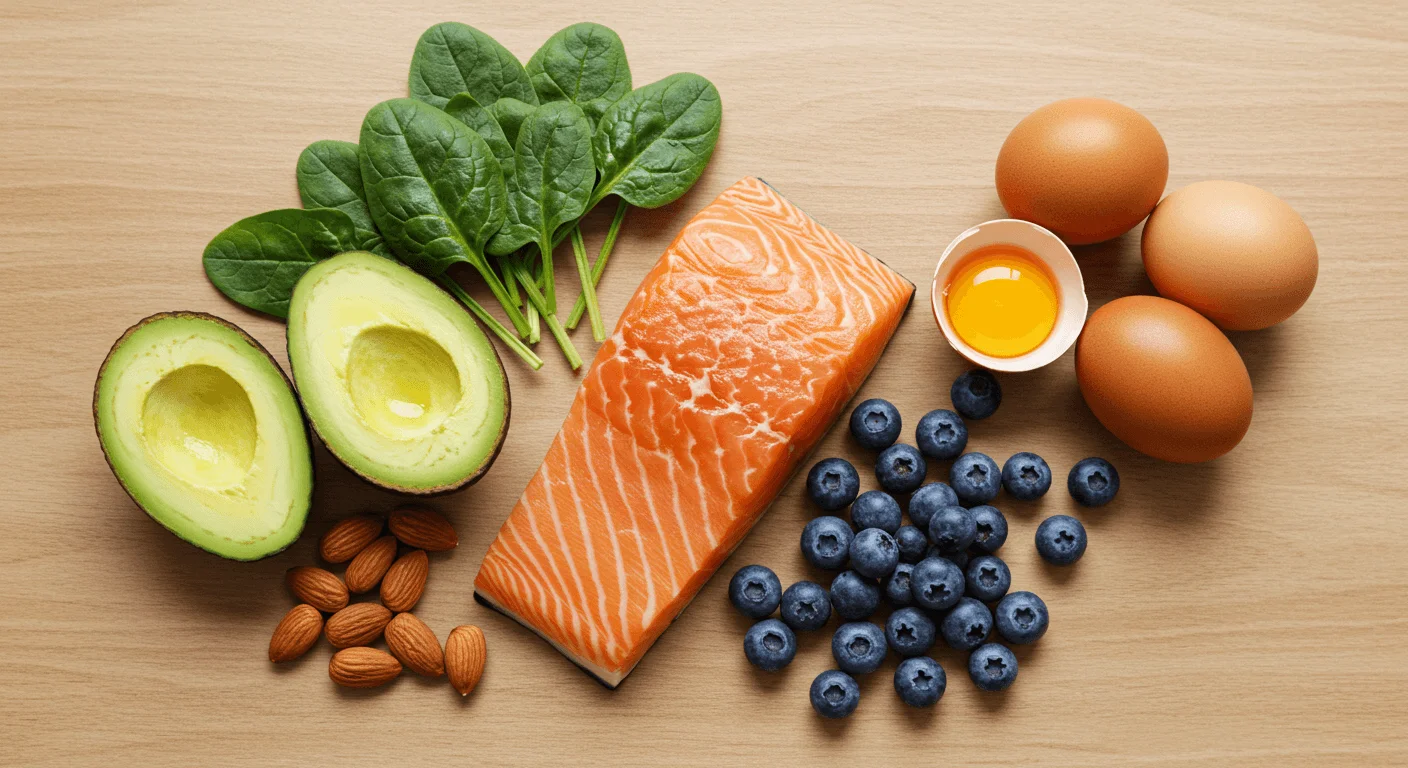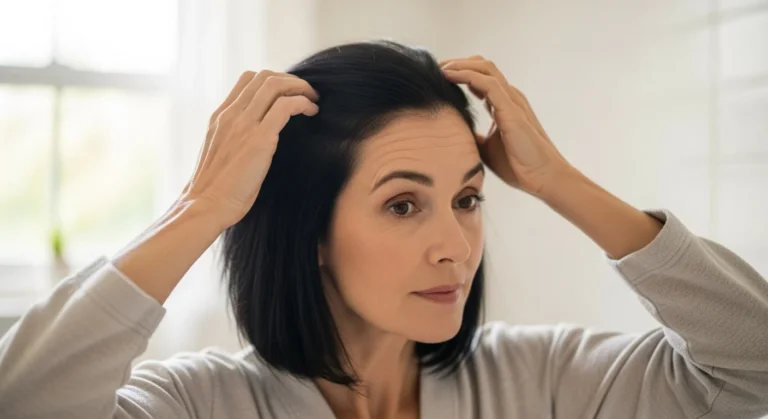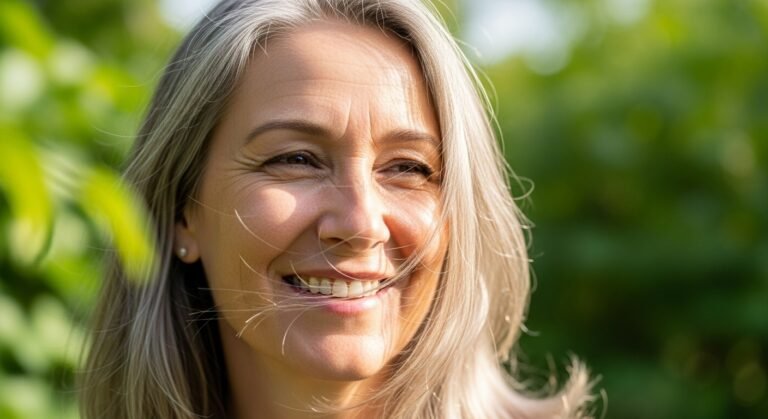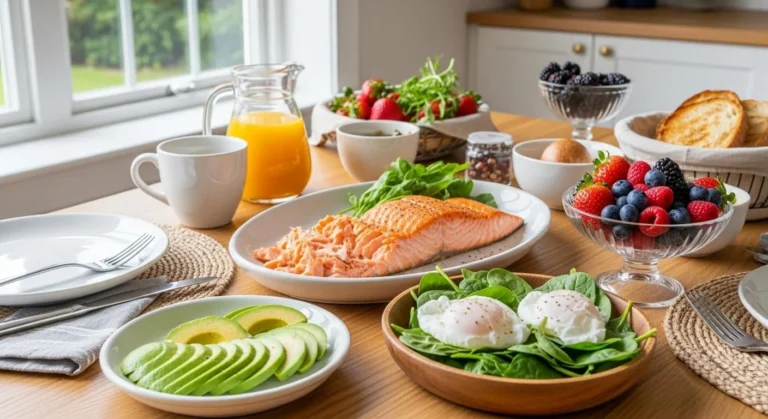Best Nutrients for Aging Hair
Aging hair deserves as much love as your skincare routine. As the years go by, your hair can lose its shine, strength, and bounce but here’s the good news: with the right nutrients, you can help it stay healthy and full of life. Whether you’re starting to notice thinning, dullness, or dryness, what you eat (and sometimes, what you supplement) can make a real difference.
Let’s walk through the best nutrients for aging hair and how they help you maintain strong, glossy strands that defy the years.
Why Hair Changes with Age
As we age, hair goes through natural changes:
- Reduced melanin production — leading to graying.
- Weakened follicles — causing thinner strands or shedding.
- Slower growth cycle — hair takes longer to regrow.
- Dryness and brittleness — due to less oil production from the scalp.
While you can’t stop time, you can nourish your hair from the inside out. And that’s where vitamins, minerals, and proteins play a starring role.
1. Protein – The Foundation of Every Strand
Hair is made of a protein called keratin, and without enough protein, your hair can become weak or brittle.
Best Sources
- Eggs
- Lean meats like chicken or turkey
- Fish (especially salmon and mackerel)
- Lentils, beans, and chickpeas
- Greek yogurt
Try adding protein to every meal even a simple smoothie with protein powder, yogurt, and spinach can give your hair-building cells what they need.
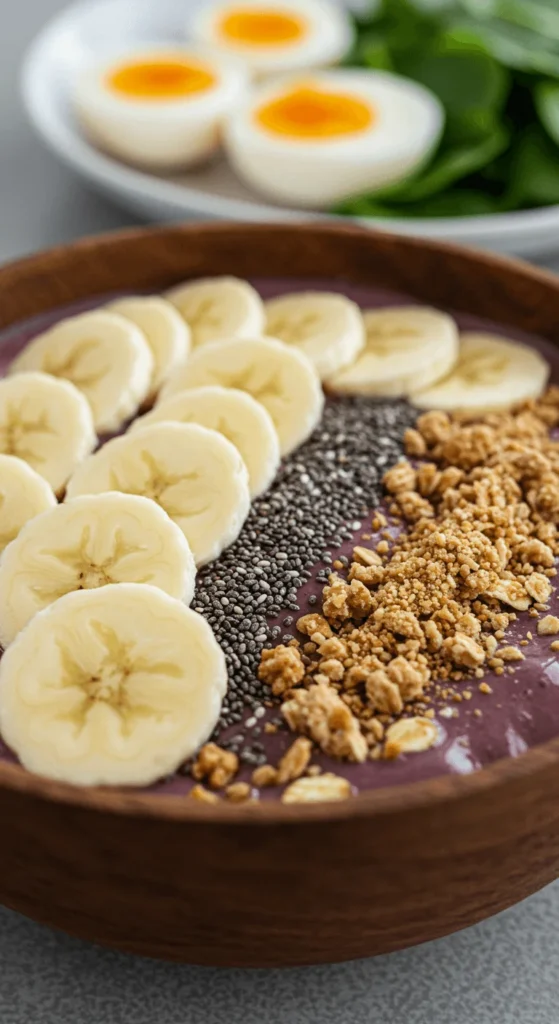
2. Biotin – The Hair Growth Booster
Biotin (Vitamin B7) helps your body produce keratin, the main structural component of hair. It’s one of the most popular supplements for hair growth and for good reason.
Benefits
- Reduces hair thinning
- Encourages stronger strands
- Promotes growth from the root
Food Sources
- Eggs (especially yolks)
- Almonds
- Sweet potatoes
- Avocados
- Whole grains
If you notice breakage or shedding, check if your diet includes enough biotin-rich foods.
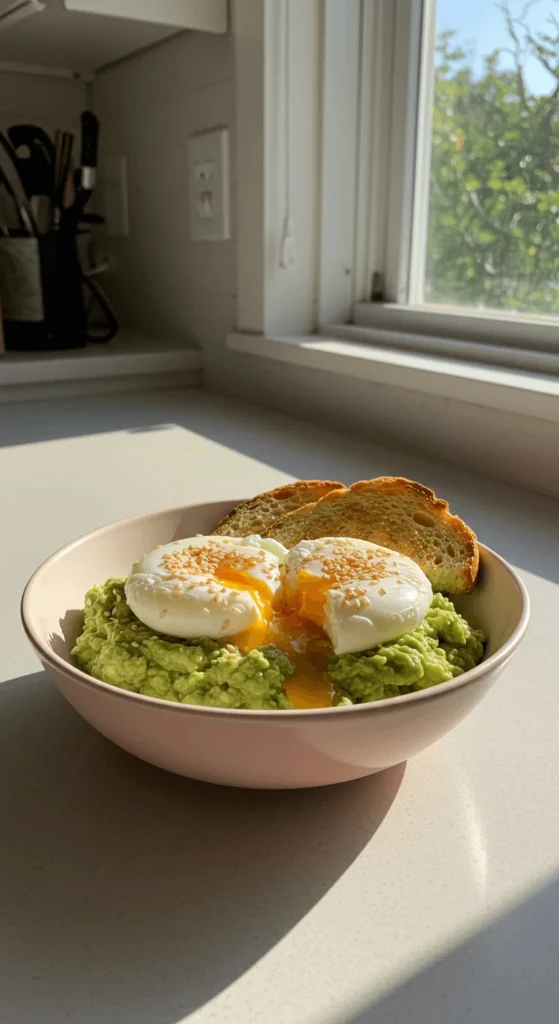
3. Iron – For Strong, Oxygenated Strands
Low iron levels are one of the leading causes of hair loss in women. Iron helps red blood cells carry oxygen to hair follicles and when you’re low on it, your scalp might not get enough nourishment.
Signs You Might Need More Iron
- Fatigue
- Pale skin
- Excessive hair shedding
Read More: Braided Ponytail Hairstyle Ideas
Best Sources
- Lean red meat
- Spinach and kale
- Lentils and chickpeas
- Pumpkin seeds
- Fortified cereals
Pairing iron-rich foods with vitamin C (like citrus or bell peppers) can help boost absorption.
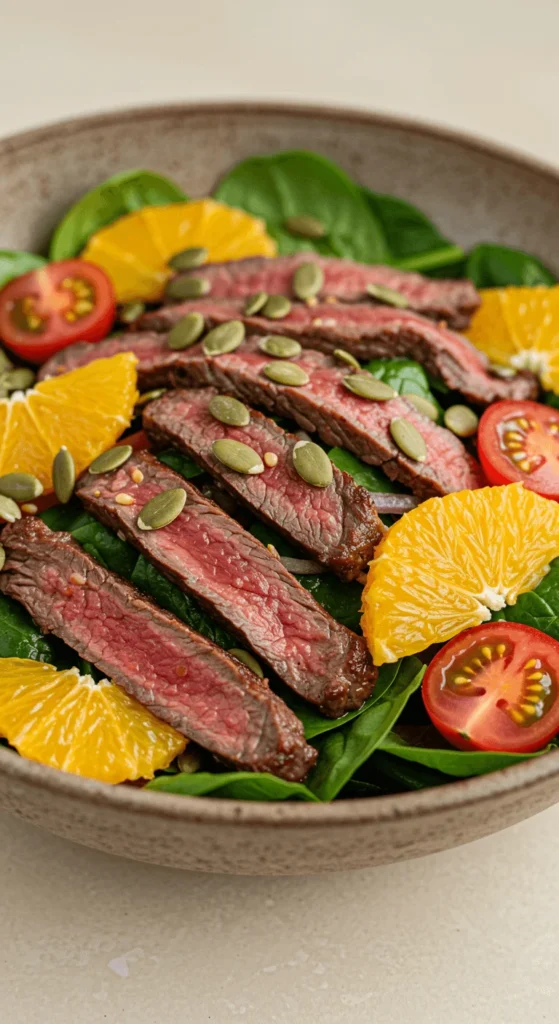
4. Omega-3 Fatty Acids – The Shine Secret
Omega-3s are healthy fats that nourish your scalp and keep your hair hydrated from within. They help reduce inflammation and support natural oil production, which becomes especially important as your scalp dries with age.
How to Get More
- Fatty fish like salmon, sardines, and trout
- Walnuts
- Chia and flaxseeds
- Fish oil supplements (consult your doctor first)
Omega-3s not only make hair shinier but also promote a healthy scalp environment for new growth.
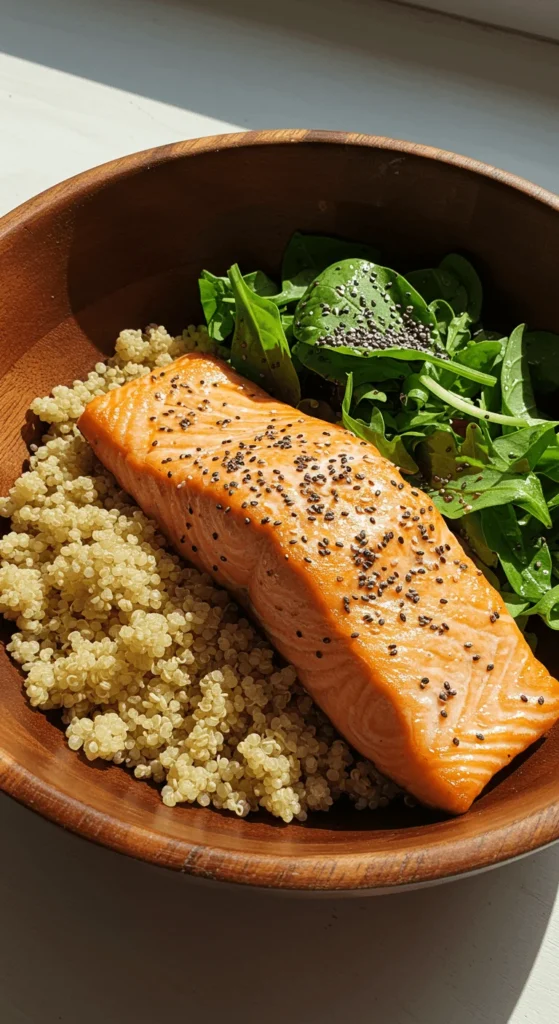
5. Vitamin D – For Follicle Activation
Vitamin D helps “wake up” dormant hair follicles and plays a role in the hair growth cycle. Many adults are deficient, especially during colder months when sunlight is limited.
Ways to Get It
- Safe sun exposure (10–15 minutes a few times a week)
- Fatty fish
- Egg yolks
- Fortified milk or orange juice
- Supplements (if advised by your doctor)
Getting enough Vitamin D can make a big difference if your hair feels thinner or you’re noticing more shedding than usual.
6. Zinc – The Scalp Protector
Zinc supports tissue growth and repair including your hair follicles. It also keeps oil glands around the follicles working properly, helping prevent dandruff and dry scalp.
Good Sources
- Pumpkin seeds
- Shellfish (like oysters)
- Nuts
- Whole grains
- Dairy products
Too little zinc can lead to shedding, while too much (from supplements) can cause other imbalances, so aim for food sources first.
7. Vitamin E – The Antioxidant Shield
This nutrient acts as a natural antioxidant, protecting your scalp and hair cells from damage caused by free radicals. It improves blood flow and moisture balance, giving hair that healthy glow.
Add These to Your Diet
- Almonds and sunflower seeds
- Avocados
- Olive oil
- Spinach
For an extra boost, you can also use hair oils or masks with vitamin E to lock in shine and hydration.
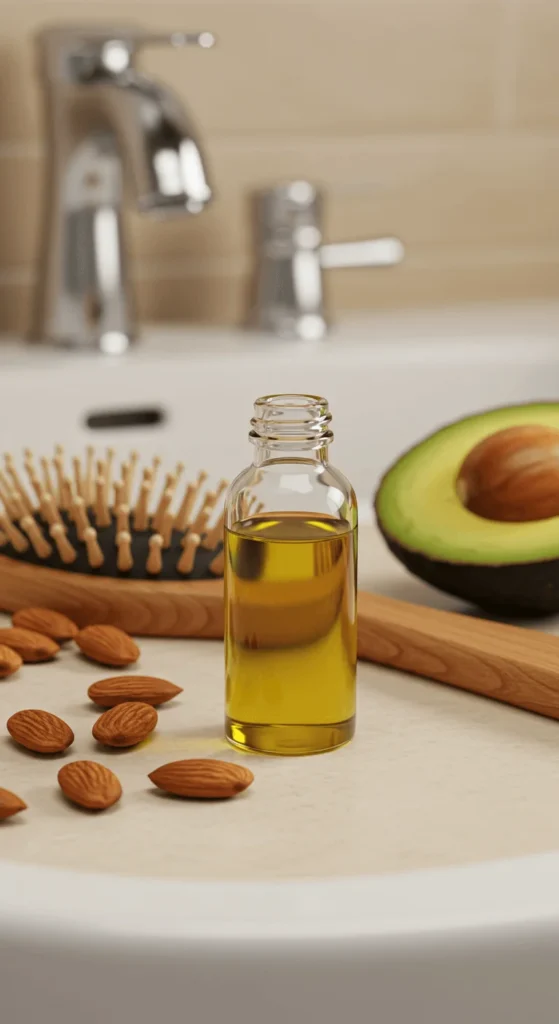
8. Vitamin C – The Collagen Builder
Vitamin C does double duty: it boosts collagen (a key protein for strong hair) and helps your body absorb iron more efficiently. Without enough, your hair may look dull or break easily.
Easy Ways to Add It
- Oranges, strawberries, and kiwis
- Red and yellow bell peppers
- Broccoli and kale
You can even blend a quick morning smoothie with spinach, orange juice, and a few strawberries to start your day with a hair-friendly kick.
Simple Tips to Boost Nutrient Absorption
Getting nutrients isn’t just about what you eat, it’s about how your body uses them.
- Balance your diet: Combine protein, healthy fats, and colorful produce.
- Stay hydrated: Water helps deliver nutrients to your follicles.
- Avoid crash diets: Sudden calorie restriction can shock your hair growth cycle.
- Manage stress: Chronic stress can trigger hair shedding.
- Sleep well: Growth hormones work best while you rest.
These small daily habits can make your nutrient-rich diet even more effective.
The Bottom Line
Healthy, vibrant hair at any age starts on your plate. From protein-packed meals to colorful fruits full of antioxidants, every nutrient plays its part. Instead of chasing quick-fix products, focus on feeding your body what it truly needs and your hair will thank you with natural shine, thickness, and strength.
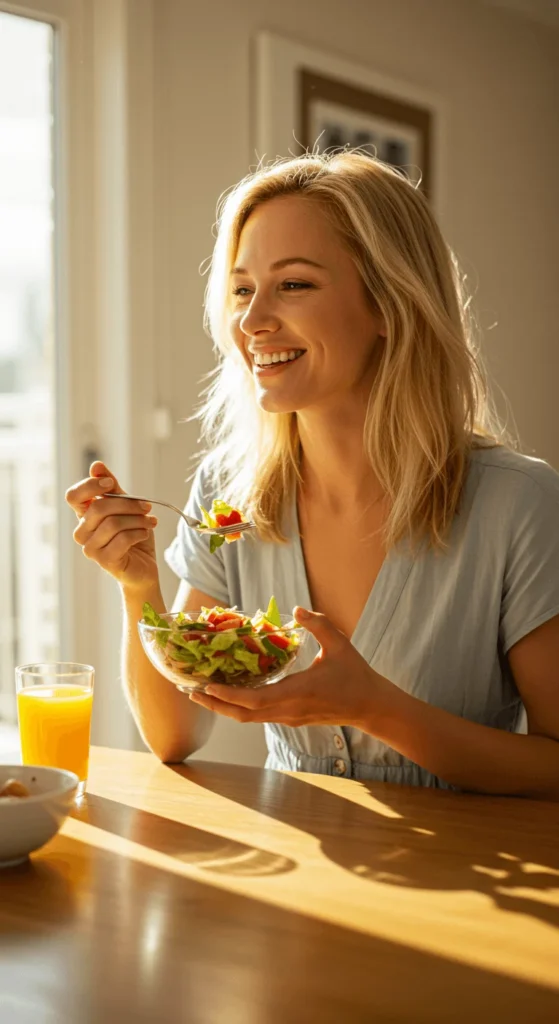
Takeaway: Your hair is a reflection of how you nourish yourself. Start with small changes maybe add more greens, snack on nuts, or drizzle olive oil on your meals and watch your strands come back to life.
Save this article for later and start building your healthy hair plate today.
Read More: Pixie Hairstyles For Older Women, 29 Hairstyles For Toddlers

